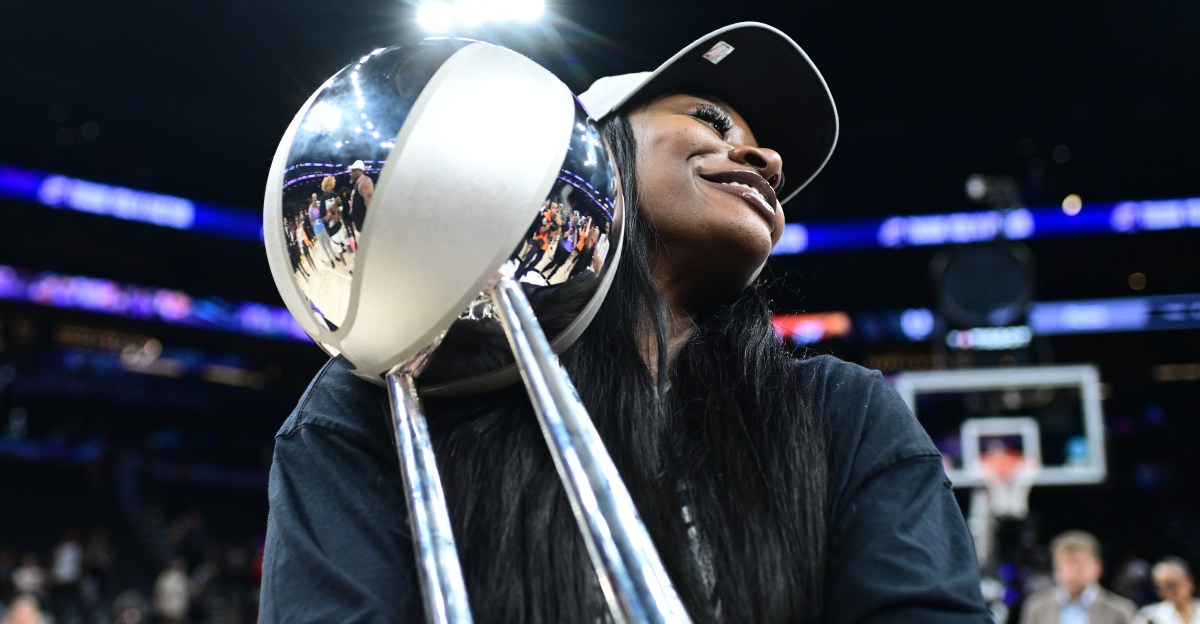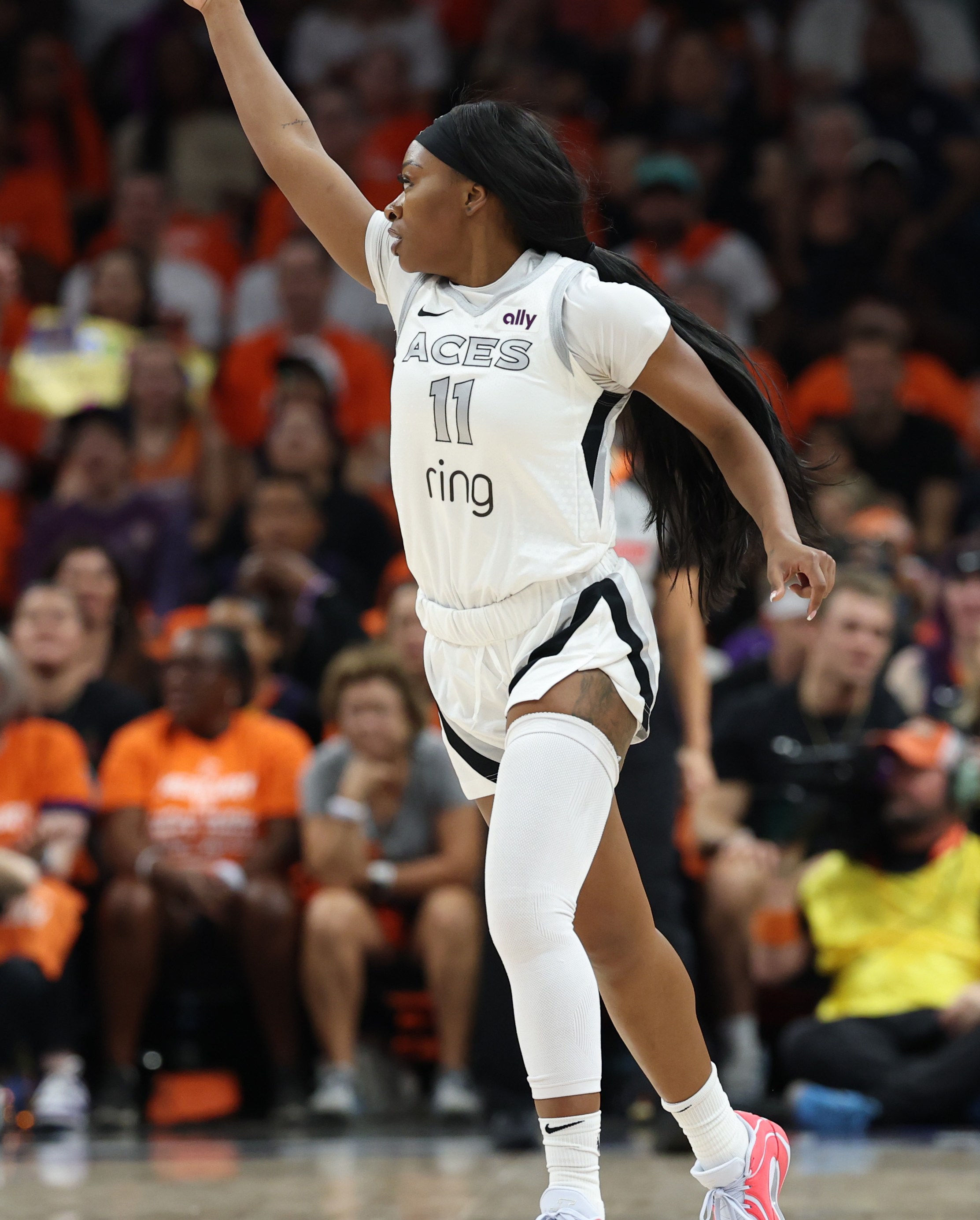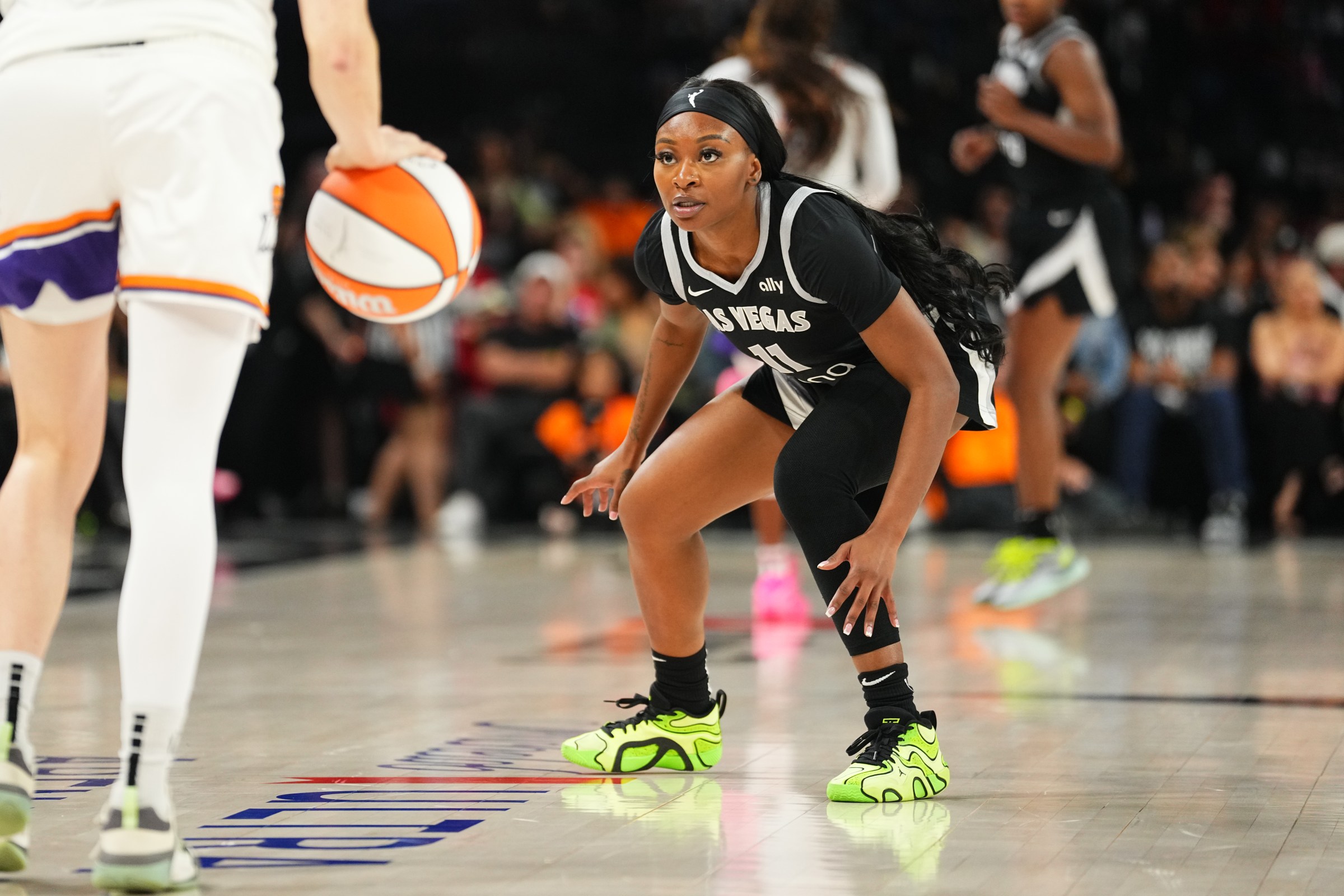Since the Las Vegas Aces won the 2025 WNBA Finals, the legends and legacies of A’ja Wilson, Jackie Young and Chelsea Gray have understandably dominated the news cycle.
As valiantly as we paint the Aces’ as a three-headed monster, and as talented as they are on the court, those three didn’t fuel the Aces late-season resurgence alone. Postseason basketball is an unrelenting trial of depth, and Dana Evans’ name rang time after time, series after series.
Now a two-time WNBA champion, Evans has become the perfect piece for contention.
Dana Evans is now a two-time WNBA champion. Getty Images
Not much was made of the Aces trading for Dana Evans in early February.
Evans’ career is hard to summarize. She’s stayed comfortably within the embrace of the league since being drafted, meaning that her career has seen less turbulence than many fellow second-round picks. Rostered, yes, but she was hardly rotational for her first two seasons, which included the Chicago Sky’s 2021 championship-winning season. Chicago finally afforded her real opportunity in 2023, and she blossomed into a legitimate Sixth Player of the Year candidate. 2024 was set to be a career year for the former ACC Player of the Year at Louisville, but instead she was yet again encumbered by a confusing role. The debuts of Angel Reese and Kamilla Cardoso overshadowed any usage that Evans was in line to inherit, and she saw her production take a serious dip despite increasing her 3-point percentage by nearly 10 digits.
Evans was traded to the Aces for two 2025 draft picks, No. 16 and No. 22, on February 7th—less than one week after the Aces had just finalized a move for Jewell Loyd. Evans was now pulling up a chair to a backcourt table with three perennial All-WNBA candidates. She was seen by most as a move for depth, not a championship piece.
Today, in the rear view mirror of a dominant Finals sweep, Evans stands as far more than an extra in the story of Las Vegas’ championship. She was one of their most valuable players.
Dana Evans scored 21 points in Game 1 of the 2025 WNBA Finals. NBAE via Getty Images
Back in his days as a podcaster, Los Angeles Lakers head coach JJ Redick described Derrick White, an ancillary two-way guard for the Boston Celtics, as the “ultimate Alfred,” a reference to Batman’s beloved butler. Redick enthusiastically cited a scene in Batman Begins where Bruce Wayne is trapped under a wooden beam, his life at the mercy of a roaring house fire. Alfred runs through the flame-engulfed mansion to find Wayne, flipping the scorched beam off of his chest with his bare hands. Never the hero himself, Alfred always found a way to contribute. Sometimes it was as simple as calling the Batmobile. Sometimes he saved the day.
While Dana Evans isn’t asked to scavenge any intel on A’ja Wilson’s arch nemesis or tend to the Batcave in her absence, she has that rare ability to scale up her impact when it’s needed the most. In Las Vegas’ 12-game postseason, she averaged 8.5 points and three assists on 47/53/100 shooting splits while only turning the ball over once per game. Her lone statistical weakness is her 2-point percentage, which hovers around 40 percent, but that’s not what the Aces need from her 5-foot-6 frame. It’s also worth noting that only 24 percent of her 2-point attempts are assisted, which is by far the least on the team. For comparison, over 56 percent of fellow guard Loyd’s 2-point attempts come via assist. Alfred isn’t asked to fight the Joker, nor is Evans asked to attack the basket.
What Evans is asked to do is lead the offense when Chelsea Gray takes a breather—and she excels. She has a loud, confident approach to the point guard position that is rarely found off the bench. Her 21-point, five 3-pointer performance in just 25 minutes during Game 1 of the Finals set a standard for the rest of the Aces backcourt.
After such a high-volume outing to start the series, most players would force the issue in the next game, testing the endurance of their hot hand. Evans took the high road in Game 2, checking into her stabilized role off the bench as if nothing had ever happened. She took just five shots, dished out five assists and the Aces won by 13. Evans’ quiet ability to both scale up to the moment and settle down into her role makes her a coach’s dream. Las Vegas won the reserve minutes with Evans on the floor in nine of their 12 playoff games. Evans also was a key scorer in the Indiana series, which can’t be understated as that five-gamer could have cut short Las Vegas’ run. She had timely baskets down the stretch in big games, and they never seemed to come easy. Late shot-clock midranges and contested 3s, both of which she landed with confidence, are absolutely backbreaking for opponents.
Repeating Finals greatness is a struggle as old as basketball itself. To secure late-postseason contention, teams like the Aces become big spenders through free agency and trades. Going all-in on marquee core of big names, they often lose the ability to find important ancillary pieces in the following years. Only then do they realize how important those kinds of players are. Las Vegas fell flat last year, and their lack of solid role players took a chunk of the blame. As she left Chicago in February, Evans’ value was uncertain. Now, with a second trophy in hand, there are 13 other teams that would love to have their own Dana Evans.



